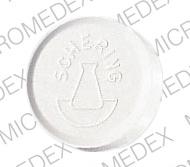Fulvicin U/F Disease Interactions
There are 3 disease interactions with Fulvicin U/F (griseofulvin).
Griseofulvin (applies to Fulvicin U/F) hepatic dysfunction
Major Potential Hazard, Moderate plausibility. Applicable conditions: Liver Disease
The use of griseofulvin is contraindicated in patients with hepatocellular failure, as animal data has shown that this drug may cause hepatocellular necrosis. The use of griseofulvin has not been adequately studied in patients with liver disease, although it is known that griseofulvin is primarily metabolized by the liver. Therapy with griseofulvin should be administered very cautiously in patients with liver impairment, and the dosing adjusted or discontinued according to clinical response.
Griseofulvin (applies to Fulvicin U/F) porphyria
Major Potential Hazard, High plausibility.
The use of griseofulvin is contraindicated in patients with porphyria. Griseofulvin has been shown to cause disturbances in porphyrin metabolism in laboratory animals.
Griseofulvin (applies to Fulvicin U/F) lupus erythematosus
Moderate Potential Hazard, Moderate plausibility.
The use of griseofulvin has been associated with the development of lupus erythematosus and lupus-like syndromes, as well as exacerbation of the disease. Griseofulvin therapy should be withdrawn in patients experiencing worsening of preexisting lupus until another cause can be identified.
Fulvicin U/F drug interactions
There are 264 drug interactions with Fulvicin U/F (griseofulvin).
Fulvicin U/F alcohol/food interactions
There is 1 alcohol/food interaction with Fulvicin U/F (griseofulvin).
More about Fulvicin U/F (griseofulvin)
- Fulvicin U/F consumer information
- Check interactions
- Compare alternatives
- Reviews (1)
- Drug images
- Side effects
- Dosage information
- During pregnancy
- Drug class: miscellaneous antifungals
Related treatment guides
Drug Interaction Classification
| Highly clinically significant. Avoid combinations; the risk of the interaction outweighs the benefit. | |
| Moderately clinically significant. Usually avoid combinations; use it only under special circumstances. | |
| Minimally clinically significant. Minimize risk; assess risk and consider an alternative drug, take steps to circumvent the interaction risk and/or institute a monitoring plan. | |
| No interaction information available. |
Further information
Always consult your healthcare provider to ensure the information displayed on this page applies to your personal circumstances.


